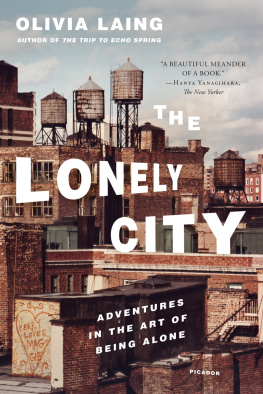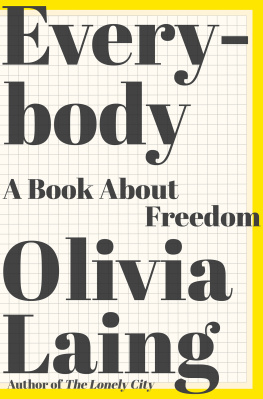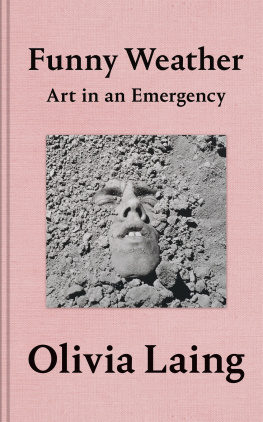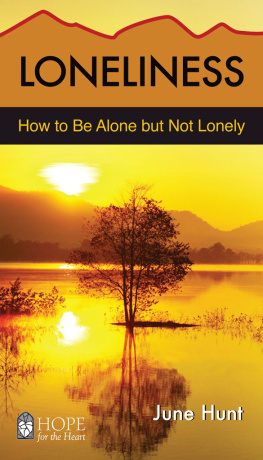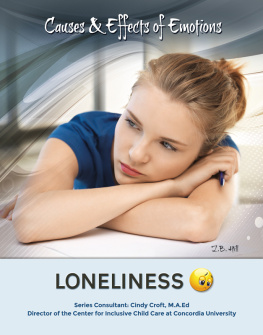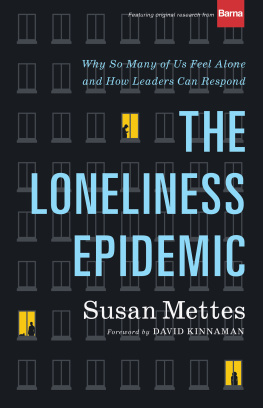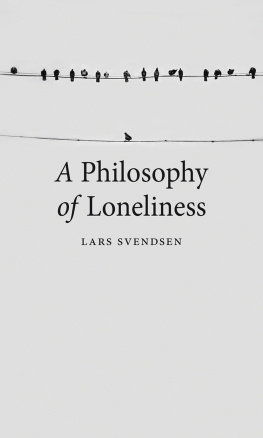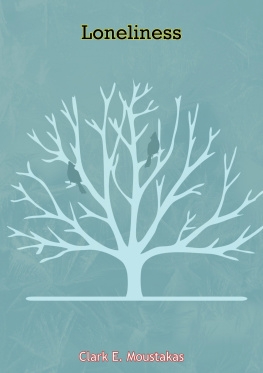| The Lonely City: Adventures in the Art of Being Alone |
| Olivia Laing |
| Vibhatsu (Mar 2016) |
|
| Rating: |
| Tags: | Artists, Architects, Photographers, Personal, Memoirs, Entertainment, Performing, Arts, History, Biography, Autobiography, Contemporary |
| Artiststtt Architectsttt Photographersttt Personalttt Memoirsttt Entertainmentttt Performingttt Artsttt Historyttt Biographyttt Autobiographyttt Contemporaryttt |
A dazzling work of biography, memoir, and cultural criticism on the subject of loneliness, told through the lives of iconic artists, by the acclaimed author of The Trip to Echo Spring
What does it mean to be lonely?
How do we live, if were not intimately engaged with another human being?
How do we connect with other people?
Does technology draw us closer together or trap us behind screens?
When Olivia Laing moved to New York City in her mid-thirties, she found herself inhabiting loneliness on a daily basis. Increasingly fascinated by the most shameful of experiences, she began to explore the lonely city by way of art. Moving from Edward Hoppers Nighthawks to Andy Warhols Time Capsules, from Henry Dargers hoarding to David Wojnarowiczs AIDS activism, Laing conducts an electric, dazzling investigation into what it means to be alone, illuminating not only the causes of loneliness but also how it might be resisted and redeemed.
Humane, provocative, and moving, The Lonely City is a celebration of a strange and lovely state, adrift from the larger continent of human experience, but intrinsic to the very act of being alive.
About the Author
Olivia Laing is a writer and critic.
Her first book, To the River , was published by Canongate to wide acclaim and shortlisted for the Ondaatje Prize and the Dolman Travel Book of the Year. She has been the deputy books editor of the Observer , and writes for The Guardian , New Statesman , and The Times Literary Supplement , among other publications. She is a MacDowell Fellow, and has received grants from the Arts Council and the Authors Foundation.
She lives in Cambridge, England.
Also by Olivia Laing
To the River
The Trip to Echo Spring
OLIVIA LAING
The Lonely City
Adventures in the Art of Being Alone

Published in Great Britain in 2016 by Canongate Books Ltd, 14 High Street, Edinburgh EH1 1TE
www.canongate.tv
This digital edition first published in 2016 by Canongate Books
Copyright Olivia Laing, 2016
The moral right of the author has been asserted
Book Reformatted by Vibhatsu
For permissions acknowledgements, please see the Notes beginning on
Every effort has been made to trace copyright holders and obtain their permission for the use of copyright material. The publisher apologises for any errors or omissions and would be grateful if notified of any corrections that should be incorporated in future reprints or editions of this book.

British Library Cataloguing-in-Publication Data
A catalogue record for this book is available on request from the British Library
ISBN 978 1 78211 123 8
eISBN 978 1 78211 124 5
Typeset in Bembo by Palimpsest Book Production Ltd, Falkirk, Stirlingshire
If youre lonely,
this ones for you
and every one members one of another
Romans 12:5
CONTENTS

THE LONELY CITY
IMAGINE STANDING BY A WINDOW at night, on the sixth or seventeenth or forty-third floor of a building. The city reveals itself as a set of cells, a hundred thousand windows, some darkened and some flooded with green or white or golden light. Inside, strangers swim to and fro, attending to the business of their private hours. You can see them, but you cant reach them, and so this commonplace urban phenomenon, available in any city of the world on any night, conveys to even the most social a tremor of loneliness, its uneasy combination of separation and exposure.
You can be lonely anywhere, but there is a particular flavour to the loneliness that comes from living in a city, surrounded by millions of people. One might think this state was antithetical to urban living, to the massed presence of other human beings, and yet mere physical proximity is not enough to dispel a sense of internal isolation. Its possible easy, even to feel desolate and unfrequented in oneself while living cheek by jowl with others. Cities can be lonely places, and in admitting this we see that loneliness doesnt necessarily require physical solitude, but rather an absence or paucity of connection, closeness, kinship: an inability, for one reason or another, to find as much intimacy as is desired. Unhappy, as the dictionary has it, as a result of being without the companionship of others . Hardly any wonder, then, that it can reach its apotheosis in a crowd.
Loneliness is difficult to confess; difficult too to categorise. Like depression, a state with which it often intersects, it can run deep in the fabric of a person, as much a part of ones being as laughing easily or having red hair. Then again, it can be transient, lapping in and out in reaction to external circumstance, like the loneliness that follows on the heels of a bereavement, break-up or change in social circles.
Like depression, like melancholy or restlessness, it is subject too to pathologisation, to being considered a disease. It has been said emphatically that loneliness serves no purpose, that it is, as Robert Weiss puts it in his seminal work on the subject, a chronic disease without redeeming features. Statements like this have a more than casual link with the belief that our whole purpose is as coupled creatures, or that happiness can or should be a permanent possession. But not everyone shares that fate. Perhaps Im wrong, but I dont think any experience so much a part of our common shared lives can be entirely devoid of meaning, without a richness and a value of some kind.
In her diary of 1929, Virginia Woolf described a sense of inner loneliness that she thought might be illuminating to analyse, adding: If I could catch the feeling, I would: the feeling of the singing of the real world, as one is driven by loneliness and silence from the habitable world. Interesting, the idea that loneliness might be taking you towards an otherwise unreachable experience of reality.
Not so long ago, I spent a period in New York City, that teeming island of gneiss and concrete and glass, inhabiting loneliness on a daily basis. Though it wasnt by any means a comfortable experience, I began to wonder if Woolf wasnt right, if there wasnt more to the experience than meets the eye if, in fact, it didnt drive one to consider some of the larger questions of what it is to be alive.
There were things that burned away at me, not only as a private individual, but also as a citizen of our century, our pixelated age. What does it mean to be lonely? How do we live, if were not intimately engaged with another human being? How do we connect with other people, particularly if we dont find speaking easy? Is sex a cure for loneliness, and if it is, what happens if our body or sexuality is considered deviant or damaged, if we are ill or unblessed with beauty? And is technology helping with these things? Does it draw us closer together, or trap us behind screens?

